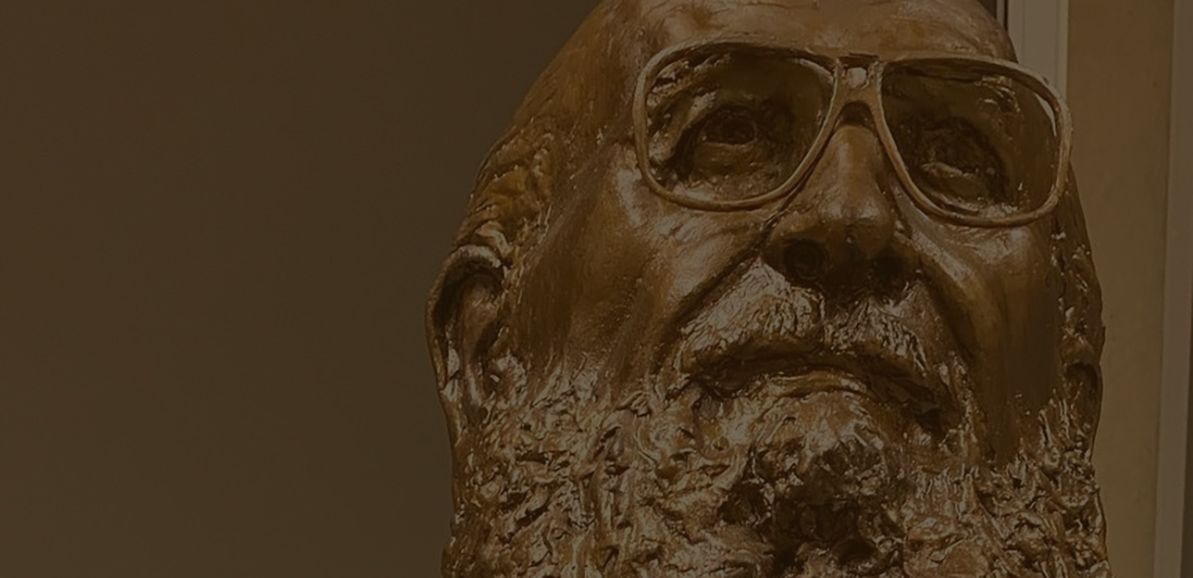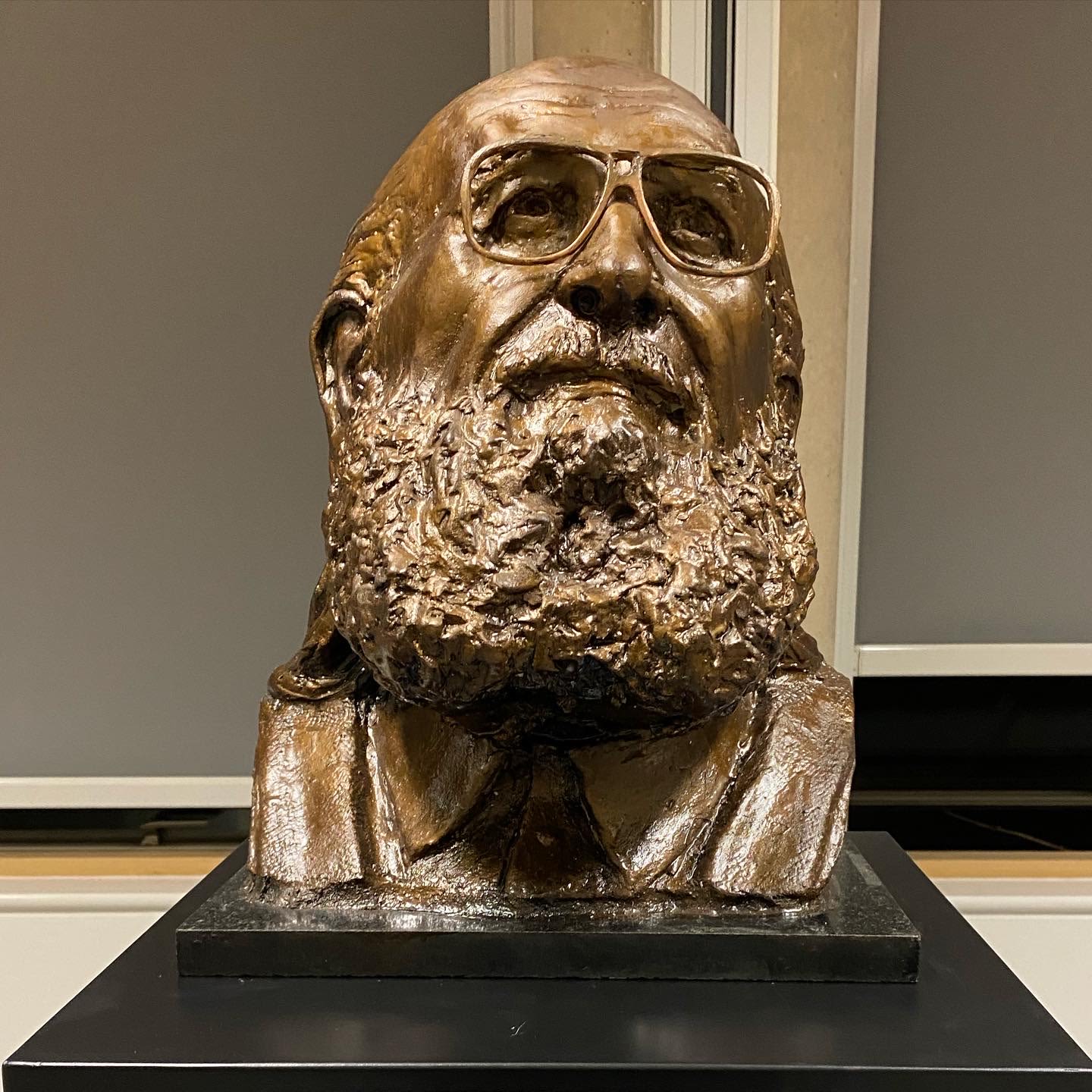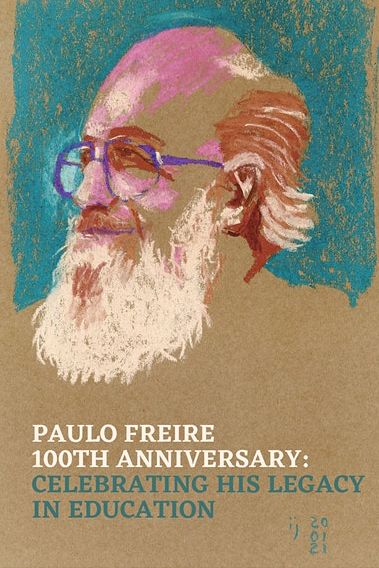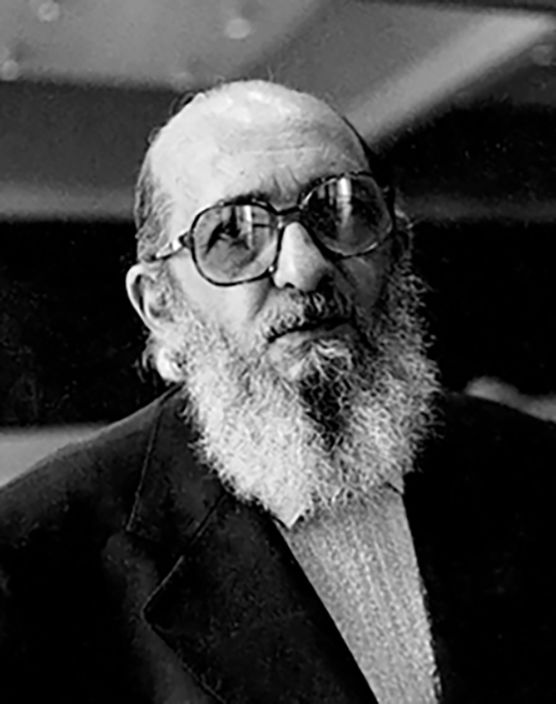

Sculpture of Paulo Freire installed as "symbol of resistance" to attacks on education

The University of Cambridge’s Faculty of Education has become the first institution outside Brazil to install one of a series of iconic sculptures of Paulo Freire: a giant of educational thought whose ideas are under attack from the country’s Government.
Freire, whose centenary is this year, was a Brazilian teacher, educationalist, and one of the most influential social scientists in history. One of his books, Pedagogy of the Oppressed, became a template for international education reforms in the 1970s, and is still one of the world’s most-cited social science texts – referenced more than the major works of Michel Foucault, Pierre Bourdieu and Karl Marx, among others.
His ideas, which stressed teaching critical thought in schools so that citizens can challenge undemocratic forms of power, have become a lightning-rod for an aggressive, counter-reformist campaign by Brazil’s Government. Its president, Jair Bolsonaro, has vowed to purge his philosophy from the education system, pledging: “to use a flamethrower at the Ministry of Education to get Paulo Freire out of there”.
The bronze bust depicting Freire is a gift from the Brazilian Landless Workers’ Movement (MST) and was arranged by a group of Latin American students. It is one of a limited series commissioned for display in schools run by the MST as part of a wider initiative to protect Freire’s legacy. The Faculty is the first non-Brazilian institution to receive one.

"Around the world, academic communities are facing challenges to their freedom that they never expected to have to defend. Freire offers a way forward for educators striving to resist this."
Professor Susan Robertson, Head of the Faculty of Education
Its installation is intended not simply as a gesture of solidarity with educators in Brazil, but of resistance to attacks on education by right-wing populism in general. Some researchers argue that the oppression of educators in countries such as Brazil, Hungary and Turkey shares a common thread with wider ‘culture war’ attacks on schools and universities elsewhere, in the form of a neo-conservative agenda which seeks to demonise the progressive thought Freire embodies.
Professor Susan Robertson, Head of the Faculty of Education, where the sculpture will be displayed, said: “Around the world, academic communities are facing challenges to their freedom that they never expected to have to defend. Freire offers a way forward for educators striving to resist this. Everything he talked about: ideas about living, loving, trying to know, being tolerant, being curious – these are resources that enable us to confront those challenges, and to live well with each other and our planet.”

The installation follows a fortnight of activities at the Faculty celebrating Freire’s centenary, in which hundreds of scholars – including many from across Latin America – have been meeting online to discuss his life and work.
Alexandre da Trindade, a Brazilian doctoral student and member of the Cambridge Latin American Research in Education Collective, said: “Academia is under attack in my country and for an internationally-recognised university to adopt Freire’s image is an important sign of solidarity with Brazilian scholars. It represents a shared set of beliefs in the emancipatory role of education and critical pedagogy.”
"Freire established the idea that we need to prepare students in school to have a political voice inside and outside it."
Dr Haira Gandolfi
Born in Recife, Brazil, Paulo Freire was a socialist and educational theorist whose work focused on improving education for the poor. He was exiled during the country’s military dictatorship from 1964, but returned in the 1980s and eventually became Education Secretary in São Paulo. He died in 1997. Today, the Paulo Freire Institute, set up to advance and develop his ideas, has branches worldwide.
Pedagogy of the Oppressed, written in exile in 1968, remains a key text in education theory. In it, Freire argued that education could not be separated from politics: that it could either be used to preserve inequalities and disadvantage, or as a mechanism for positive social change.
He was especially critical of what he called the ‘banking model’ of education, in which pupils are treated as passive, ‘empty accounts’ waiting to be filled with knowledge.
Like other reformers, Freire questioned heavily disciplinarian approaches to schooling in which students were expected to memorise facts uncritically.

“He was one of the first educators to explicitly link education with political participation and social action,” Dr Haira Gandolfi, Assistant Professor in Education at Cambridge and a former teacher in Brazil, said. “Freire established the idea that we need to prepare students in school to have a political voice inside and outside it.”
Such principles appear anathema to Brazil’s current Government, which has, among other measures, promoted ‘militarised schools’, attempted to rewrite what students learn about the 1964 coup, slashed higher education budgets, and opposed the study of sexual diversity, equality and racism.
To justify that agenda, Bolsonaro, backed by ultra-conservative groups such as the No Party School Movement, claims that the education system has been corrupted by “Marxist indoctrination”, of which Freire’s ideas are emblematic. ‘Left-wing’ educators have been targeted in online witch-hunts and campaigns of physical intimidation, in a dark echo of the junta years.
"Academia is under attack in my country and for an internationally-recognised university to adopt Freire’s image is an important sign of solidarity with Brazilian scholars"
Alexandre da Trindade
The installation of Freire’s image at Cambridge also signals concern about the parallel agendas of other neo-conservative, populist movements. Other far-right regimes have similarly attacked their own countries’ education systems, styling them as ‘leftist’ and ‘revolutionary’. More broadly, however, researchers have expressed alarm at how universities and schools are being targeted in often-fabricated ‘culture war’ debates, not least in Britain and the United States. Although less violent, many use similarly toxic rhetoric to promote anti-progressive approaches to education.
“If you think about current debates – the criticism of school climate strikes, for example, or attempts to stop the incorporation of discussions about racism into schools and curricula – they are underpinned by an objection to the idea that schools should be places where children engage with these complex sociocultural ideas,” Gandolfi said.
“Freire matters because he embodies resistance to that. Some administrators today want schools to be places where children just go to learn facts. Freire said that they are also places where children go to become citizens.”